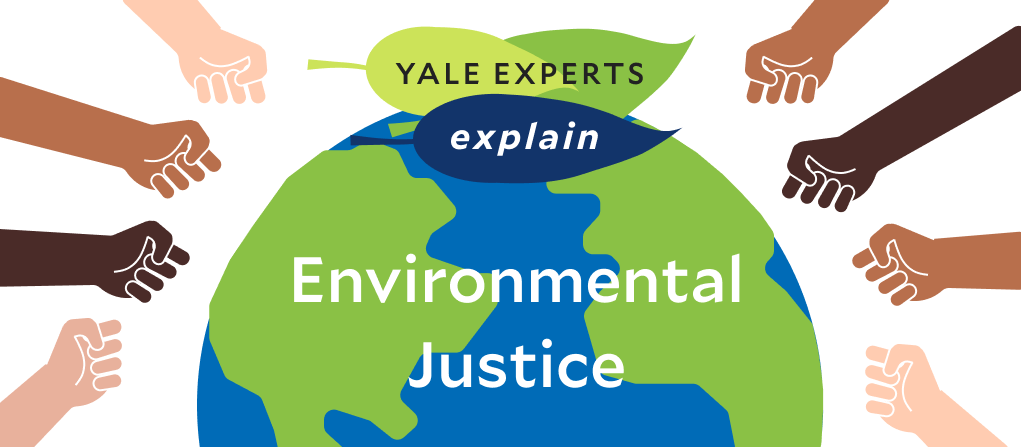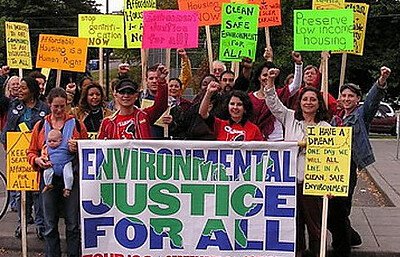|
Getting your Trinity Audio player ready...
|
Environmental justice is a pressing global concern, emphasising the equitable distribution of environmental benefits and burdens among all communities. This article delves into the multifaceted dimensions of environmental justice, exploring its significance, challenges, and the imperative for collective action.
Defining Environmental Justice
To begin with, environmental justice centers on fair treatment and meaningful involvement in environmental decision-making for all, regardless of race, income, or socio-economic status. Therefore, it rejects the disproportionate burden of environmental hazards on marginalised communities, advocating for inclusivity and equity.
Historical Context and Injustice
In addition, understanding environmental justice requires acknowledging historical injustices. Hence, marginalized communities, often low-income and predominantly people of color, have borne the brunt of pollution, hazardous waste sites, and environmental degradation due to discriminatory policies and practices.

Disproportionate Impact on Marginalised Communities
To add on, communities of color frequently face heightened exposure to pollutants and environmental risks. Hence, factors like discriminatory zoning, industrial practices, and lack of representation contribute to the disproportionate environmental burdens borne by these communities.
Intersectionality in Environmental Justice
Environmental justice intersects with various social justice issues. The intersectionality of race, class, and gender amplifies the vulnerabilities of marginalized communities, emphasizing the need for an inclusive and comprehensive approach to justice.
Environmental Racism
The term “environmental racism” describes the deliberate placement of toxic facilities in minority communities. Hence, this discriminatory practice perpetuates systemic inequalities, exposing vulnerable populations to health risks while privileging more affluent communities.
Health Disparities and Environmental Impact
Furthermore, environmental injustice exacerbates health disparities. Proximity to pollution sources contributes to respiratory issues, cancers, and other health problems in marginalized communities, amplifying the urgency of addressing environmental inequalities for public well-being.
Legal Frameworks and Environmental Justice
To add on, legal frameworks play a pivotal role in addressing environmental injustice. Legislation like the Civil Rights Act empowers communities to challenge discriminatory environmental practices and demand fair treatment, fostering a legal foundation for environmental justice advocacy.
Community Activism and Grassroots Movements
Environmental racism is often championed through grassroots movements and community activism. Thus, local communities mobilize to raise awareness, protest against harmful practices, and advocate for policies that prioritise their well-being and environmental sustainability.
Economic Disparities and Access to Resources
Economic disparities compound environmental injustice. Hence, low-income communities often lack resources to resist environmental hazards or relocate, perpetuating a cycle where economic vulnerability translates into heightened environmental risks.
Global Perspective on Environmental Justice
The principles of environmental justice extend globally. Developing countries, often disproportionately impacted by environmental issues, advocate for fair international policies that recognise the shared responsibility for a sustainable and equitable planet.
Climate Change and Vulnerable Communities
Climate change intensifies environmental challenges, posing heightened risks to vulnerable communities. Low-income areas and marginalised populations are more susceptible to extreme weather events. Hence, making climate justice a crucial aspect of the broader environmental justice agenda.
Educational Disparities and Empowerment
Educational disparities play a role in perpetuating environmental injustices. Therefore, empowering communities through environmental education fosters awareness, equipping individuals with the knowledge and tools to advocate for their rights and environmental well-being.
Corporate Accountability and Ethical Practices
Moreover, corporations bear responsibility in fostering environmental justice. Hence, adopting ethical practices, mitigating environmental harm, and engaging in transparent corporate accountability contribute to dismantling systemic injustices perpetuated by industrial practices.
Government Policies and Environmental Equity
Additionally, government policies shape the landscape of environmental racism. Hence, equitable policies that prioritise marginalised communities in environmental decision-making, resource allocation, and pollution control are crucial in dismantling systemic environmental inequities.
Technology and Environmental Monitoring
Advancements in technology facilitate environmental monitoring, aiding in the identification and rectification of environmental injustices. Therefore, accessible data empowers communities to gather evidence, hold accountable those responsible for environmental harm, and advocate for change.
Public Awareness and Conscious Consumerism
Moreover, raising public awareness is pivotal in the pursuit of environmental justice. Conscious consumerism, informed by an understanding of a product’s environmental impact, encourages accountability in industries and supports environmentally responsible practices.
Building Bridges for Collective Action
Environmental justice requires collective action. Moreover, bridging diverse communities, fostering alliances, and amplifying marginalised voices are essential components in the shared endeavor of creating a more just and sustainable world.
Conclusion
In conclusion, environmental racism is not only an ethical imperative but a fundamental human right. Addressing environmental inequalities demands a comprehensive approach that dismantles systemic injustices, empowers communities, and forges a path towards a more equitable and sustainable future. Through collective action, policy advocacy, and a commitment to inclusivity, we can nurture a world where every individual, regardless of background, enjoys the benefits of a healthy and thriving environment.

